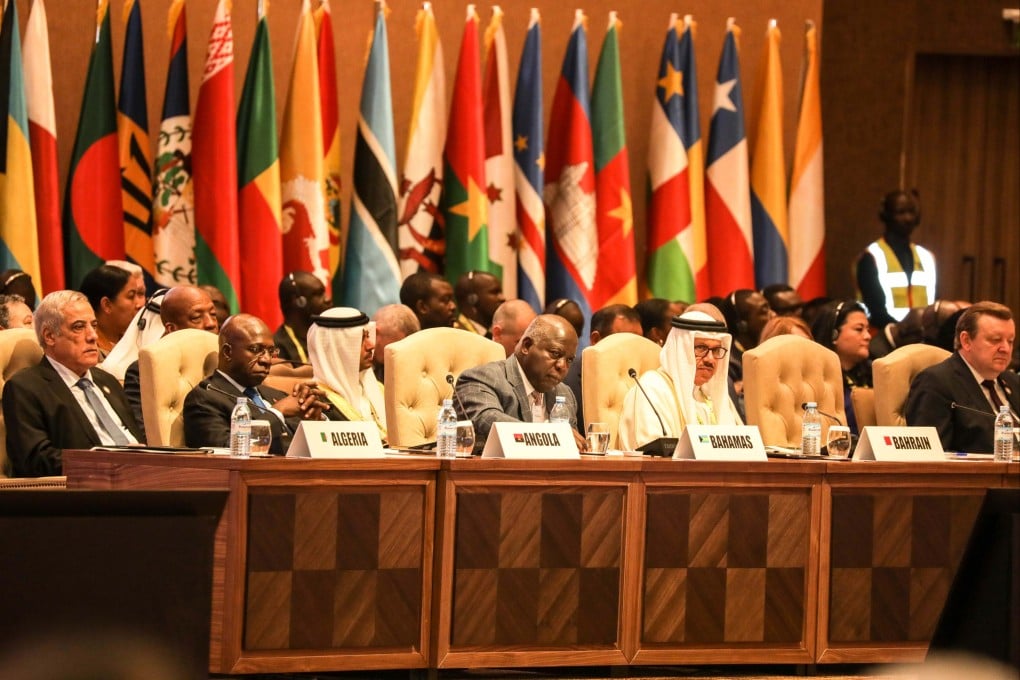Advertisement
How the Non-Aligned Movement fits in with China’s global geopolitical ambitions
- Beijing has sent a high-profile delegation to the movement’s summit in Kampala, despite only being an observer
- The forum gives China an opportunity to coordinate its foreign policy with member nations, an analyst says
Reading Time:4 minutes
Why you can trust SCMP
22

China may not be a member of the Non-Aligned Movement but its presence was unmistakable when the group met in the Ugandan capital of Kampala this week for a summit.
Apart from the 70 vehicles Beijing donated to transport attendees, China sent Politburo member and Vice-Premier Liu Guozhong at the head of a delegation to address the more than two dozen heads of state and government at the event.
Liu is also in Kampala for the Third South Summit, which from Saturday brings together G77 countries and China.
Advertisement
Observers said Beijing’s presence at the gatherings reflected the weight it put on the movement’s ability to support China’s global ambitions amid changing geopolitical dynamics and conflicts around the world.

The war in Gaza and the push to reform global political and economic systems dominated speeches at the NAM Summit, a forum of 120 poor or developing countries.
Advertisement
Advertisement
Select Voice
Choose your listening speed
Get through articles 2x faster
1.25x
250 WPM
Slow
Average
Fast
1.25x